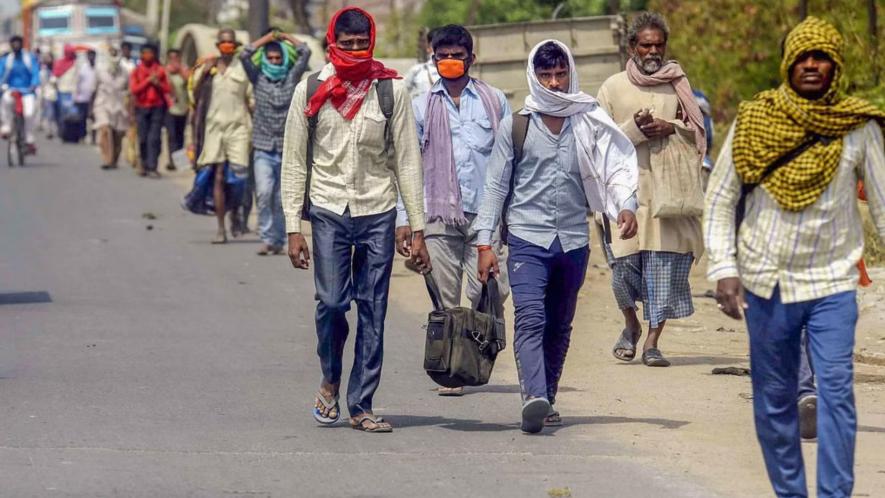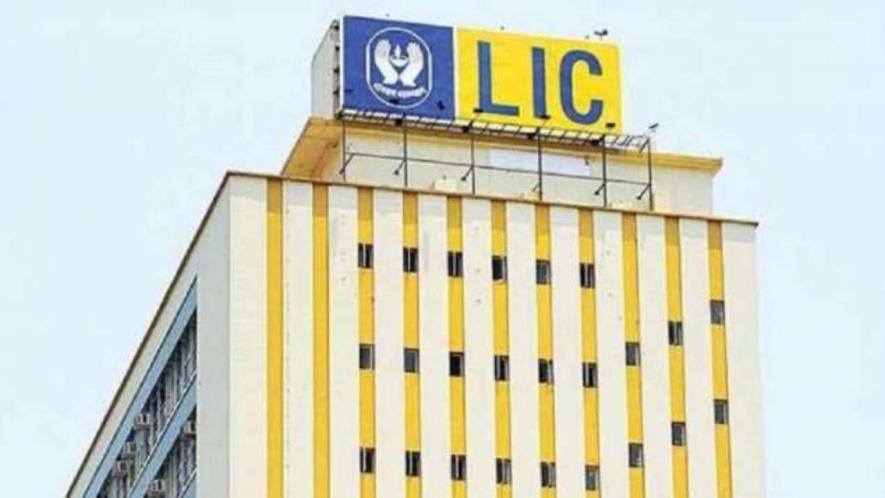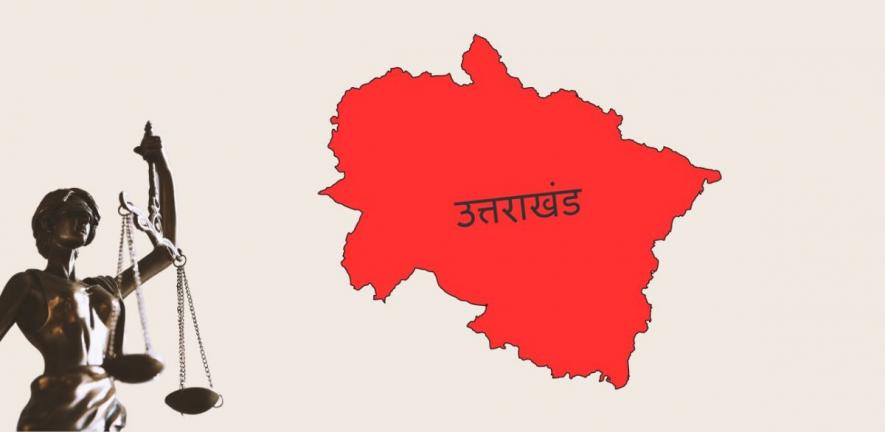India’s Domestic Migration Crisis has Roots in its Political Economy

Representational Image. Image Courtesy: PTI
The Covid-19 pandemic gave a new perspective on the state of Indian migrant workers through the visuals of poor families escaping their economic and social vulnerabilities in the very Indian cities they served. The escape was life threatening with unimaginable uncertainty over long walks on highways and railway tracks covering hundreds of miles. Understandably, they were without much money, food, and drinking water, coupled with the scorching tropical summer of 2020, not to mention lack of medical aid. Inevitably, this caused death from exhaustion, hunger, and thirst. This was a site of “major humanitarian crisis” in India over recent decades. It was a sight of statelessness.
While the visuals of inhuman sufferings, most importantly, the invisible institutional neglect of Indian migrants succinctly brought their lives into the public sphere, tracing its underlying causes demands deeper insights beyond just the pandemic episode. It demands an understanding of the political economy around India’s domestic migration for assessing this section of vulnerable people who move from one state to the other for livelihood.
The political economy of India’s international migration is quite different from its domestic counterparts. Notwithstanding the varied difficulties that India’s international migrants are undergoing, given the limited scope of this article, its focus would be on India’s domestic migration.
Migration in the Discourse on Indian Growth
Unlike many other socio-economic issues, e.g., poverty, employment, social and gender discrimination, etc., the debate around the quantity, and especially the quality of migration has been relatively less intense in India. One manifestation of the lack of priority given to this issue could well be the limited availability of migration data at the national level. This does not, of course, mean that because of lack of data, issues related to migration are not given due sensitivity, rather, it’s the opposite.
There are two distinct strands of migration analysis in India. One strand takes the view that the majority of Indian migrants move to richer states because of lack of economic opportunities in their low-income home states. Majority of them are economically ‘distressed’ migrants, who work in the informal sector in cities, while others are involved in seasonal agricultural and non-farm activities in rural areas in other states.
The Western and Southern states, where industry and commercial service sectors are concentrated, the informal economy grew hand in hand. The growing informal sector in and around cities was sustained by exploiting these distressed migrants with low wages and lack of employment and social security benefits. Low incomes added with employment insecurity, therefore, force them to live in informal and congested housing conditions, including in urban slums.
This strand has been consistent with the discourse that disproportionate industrialisation between Northern, Eastern and North-eastern states relative to that of the industrialised Western and Southern states, has been the cause of distress migration from poorer states to their industrialised counterparts.
This strand of migration discourse could perhaps hold the governments – both at Union and state levels – accountable for such distress migration due to lack of ‘balanced growth’ leading to ‘divergence’ among Indian states. Moreover, this strand, therefore, could make governments responsible for social security entitlements, both at home and host states, especially for distressed migrants and their families back home.
The other strand – a relatively newer one – takes the view that migration is not necessarily due to ‘distress’ in native states, but because of better ‘opportunities’ created through fast economic liberalisation in the Western and Southern states. Therefore, this discourse places migration as an ‘opportunity’ for all, as opposed to ‘distress’ of the underprivileged. Further, to legitimise the neoliberal plan, migration has been projected as a prized ‘aspirational’ aspect for migrants.
Given these two drastically opposite strands in India’s migration discourse, governments seem to have prioritised the second one in line with neoliberal economic policies, leading to a migration crisis at hand. For a deeper look at the Indian migration discourse, there is a need to study the political economy around the preparation of migration- related statistics and official records.
Political Economy Around Migration Data
There are only two sources of India’s migration data at national level: the decadal population census and the occasional household surveys by the National Sample Survey Office (NSSO), the latest being held in 2011, and 2020-21, respectively.
Though there is no mandatory provision of official records involving the movement of people from one state to the other, neither the home states nor the host states keep any systematic records on outward and inward migration. This, in turn, has left no usable official data on the stock and flow of migrants, their socio-economic profiles, and seasonal variation across home and host states.
Perhaps, it would not be an exaggeration to make an observation that the data on India’s migration is grossly inadequate, infrequent and incoherent, if not absent. This is not to deny the existence of valuable studies addressing various aspects of Indian migrants beyond just numbers.
Not having any state-level official record of migrants can be thought as freedom that the Indian migrants might have enjoyed, but on the contrary, it has left the unaccounted, especially the socio-economically vulnerable migrants and their families, without any social security entitlements and rights, both from the home and host states, thereby exposing their vulnerability at the hands of private recruiting agents and employers.
The non-existence of such official records has roots in the political economy of India’s migration, and the public discourse around it. The inadequacy of objective information about migrants has left governments – both at Union and federal levels– without any public scrutiny of their responsibilities toward migrants.
The breadth and depth of the pandemic-led crisis inflicted upon Indian migrants will take time to be fully assessed, if done at all. However, the pandemic visuals of hapless migrants escaping cities, with their lives at stake during the arduous journey back home hundreds of miles away has been recorded. They were not just escaping from the infectious disease but from distrustful governments. The archives of those distressed images cannot be obliterated from the country’s history that has been marked with neoliberalism.
First, when the government announced a nationwide lockdown, stopping all means of transport, in a short notice of just four hours, starting the midnight of March 24,2020, it left many migrants without any choice but to endure an impending loss of livelihoods and income.
Second, most local and host governments kept these migrants without any assurance of food, shelter, water, and medical aid; mistreated them as ‘outsiders’ with suspicion they might spread the infection and overburden their healthcare facilities.
Third, when these domestic migrants were ‘officially’ allowed to travel back home, it was without adequate, safe and free of cost arrangements of the vast network of national railways. The migrants’ trust in governments finally collapsed.
What could be the reasons for such a seemingly manageable crisis that made most vulnerable migrants suffer? In situations such as pandemic, the availability of official records could be instrumental for governments to trace and assess vulnerable migrants who need coordinated support both from the home and host states, and the Union government. This could be of great help in arranging medical facilities and quarantine measures.
There can be no justification, however, neither for the Union government to announce an unprepared lockdown, nor for state governments not to take care of these vulnerable migrants. Both the Union and state governments, perhaps, abridged their responsibility taking advantage of not having any official records of migrants. This also curtailed governments’ accountability, as there was no effective public scrutiny and judicial intervention even at the height of the migration crisis.
However, the only island in this sea of crisis was, perhaps, Kerala, which was effective in managing the crisis with informed preparedness of a compassionate government. Unlike all other Indian states, Kerala’s two-decade long engagement with the Kerala Migration Study since 1998 has been instrumental for informed decisions through prioritised public discourse around migration. The Kerala story needs another article.
The writer teaches economics at Tata Institute of Social Sciences, Hyderabad Campus. The views are personal.











